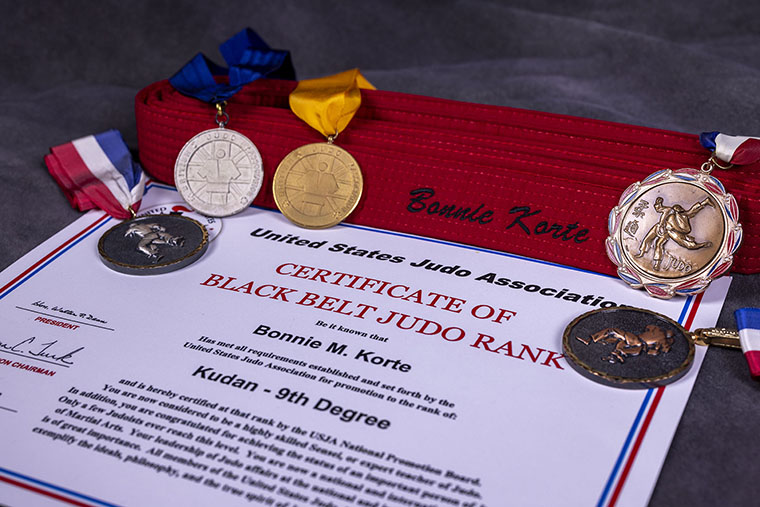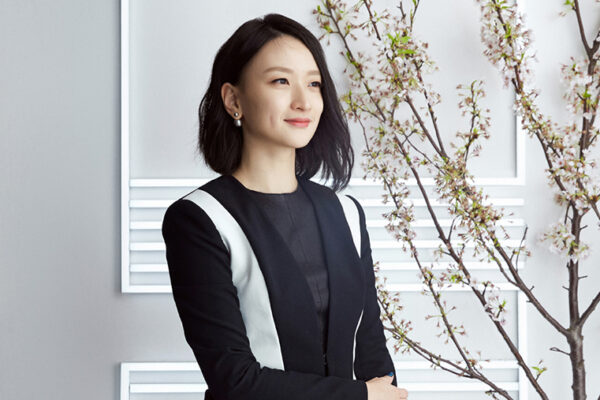In the spring of 2023, Bonnie Korte, BFA ’73, became the first woman in the United States Judo Association (USJA) to earn kudan — a ninth degree rank in judo. It’s a distinction only a few have achieved worldwide and one that takes decades of training and experience. The rank far exceeded any goal she had set when she began judo at age 13 in 1963 because “my father wanted me to learn self-defense.”
What followed, though, was international fame, a studio of her own and a lifetime commitment to a sport that taught her so much more than self-defense. It’s a sport in which those who are most successful master self-discipline, self-control and technique because they practice, practice, practice. And in Korte’s case, learning how to “throw like a girl.”
The thing about self-defense is that, because of judo, nobody would look at me and think that I could do what I can do. No one would know what I’m capable of because I have mastered many techniques. In judo, you are confident because you know what you’re going to do. You control the element of surprise.
I was known for my throws, and in the 1980s, after I had won some international competitions, the USJA did a promotional poster of me withthe words, “Throw like a girl.” When you throw someone in sport judo, you first pull them up. Your hands grab the gi [the heavy tunic worn by all judoka], and you pull them up before you throw them. That keeps your opponent from hitting the ground with full force. I would then follow the throw down to the mat and go into a hold, because you never know what your opponent might do on the mat. You need to finish it with a pin.

I knew I could compete on the international level. I never let myself get intimidated by my opponents. I’d tell myself, “I trained hard. I went to camp. I’ve done this before.” That kept my mind off who I was going to compete against. Because you never knew who was next.
In judo, you’re constantly thinking a few steps ahead. You learn to think faster. And because you’ve practiced the techniques so many times, your body and your brain just react together. You don’t consciously think, “He put his arm here and his leg here, so I’m going to do this.” You just react because you’ve practiced it so many times. And you’ve practiced it not just standing still, in kata, but in randori, where you’re constantly moving around.
Time is the greatest teacher. We all learn the same throws, same techniques, same rules, but what matters most is how much time you spend practicing. You must work at it. Through repetition, you get more speed; through speed you develop routines. In judo, it doesn’t matter how strong you are. But if you train hard, if you commit the time, you get stronger. The exercises that you do in the beginning increase your agility and agility helps increase your strength. You don’t have to be Hercules to walk onto a judo mat.


